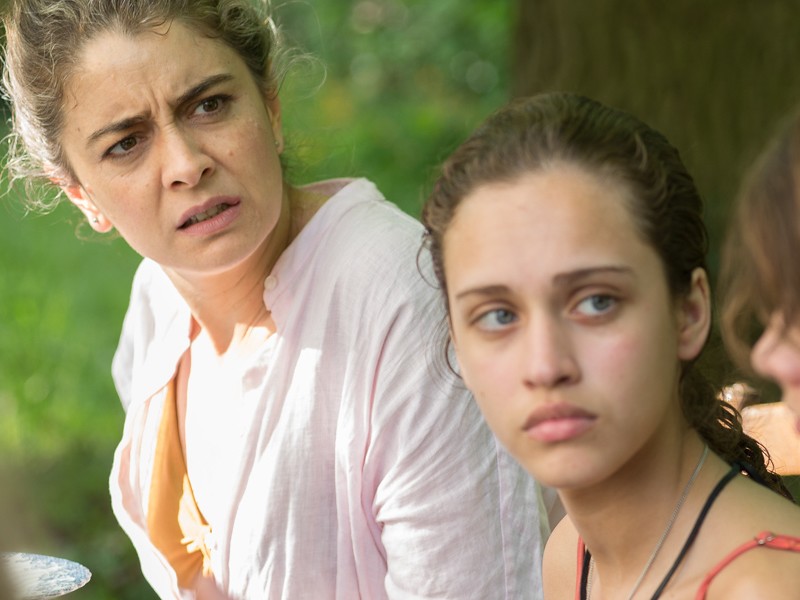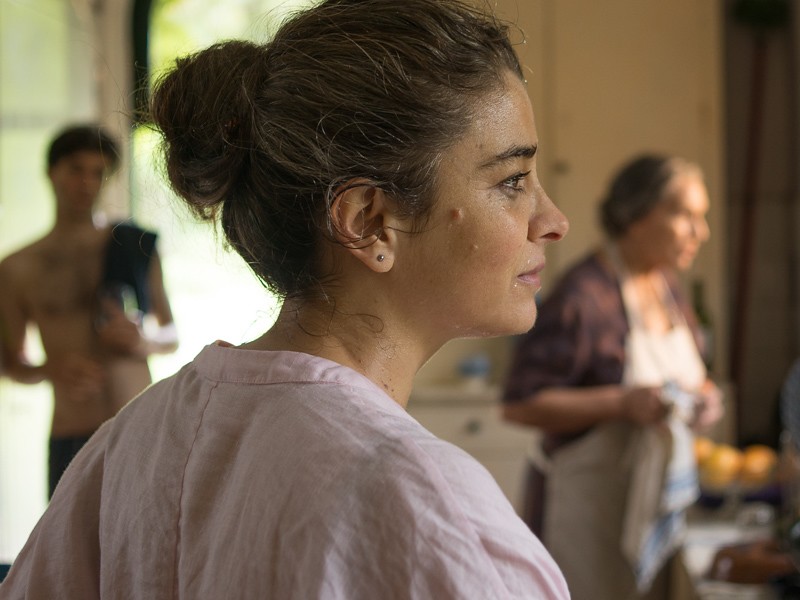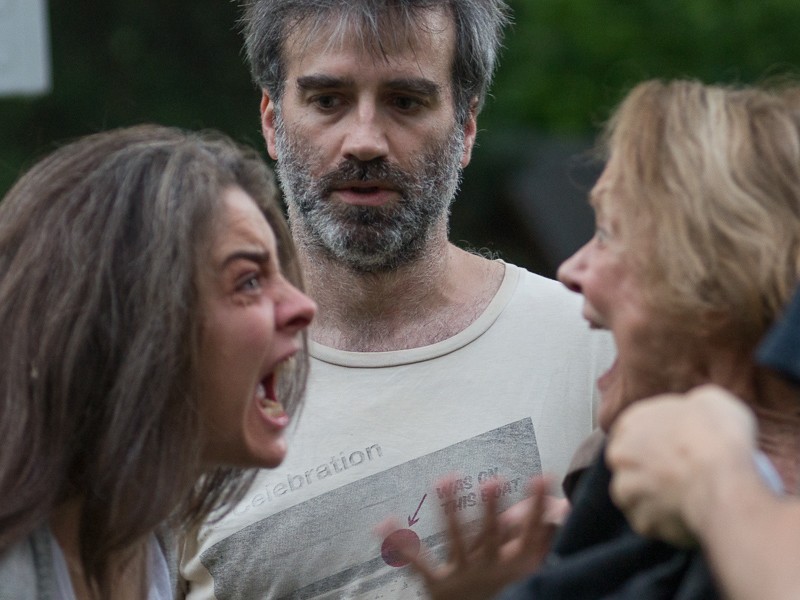|
By Benjamin Akpan There’s something deeply poetic about a young woman’s coming of age — that moment at which she finally reaches womanhood, becoming free to be her own person. Coming of age doesn’t necessarily involve some form of rebellion, though it is better aided by it. And then there are those who never really come of age, perpetually bound to the societal shackles, simply treading through life, albeit impersonally. It’s like you’re being controlled by a force you’re helpless to; it’s like you’re sleepwalking. It is in this state that the women in Argentine director Paula Hernández’s latest effort find themselves. The Sleepwalkers tells the tale of a freshly pubescent young woman Ana (Ornella D’elia), and the fraught relationship she has with Luisa her mother (Érica Rivas), who is very overprotective. See, Luisa has reluctantly agreed to spend yet another holiday at her husband’s family home. She is constantly at odds with her husband Emilio, who is ever undermining her as well as making inconsiderate and irrational decisions. In all her relationships, there are fissures: the communicational gap between Luisa and Emilio is slowly widening, while she struggles to bridge the one forming between her and Ana, whom she’s discovered sleepwalking naked in their home. © Youtube | TIFF Trailers Luisa has spent a great deal of her life pleasing others, but deep down she yearns for change, and she’s surely but unhurriedly reaching her breaking point. This is further exacerbated when she discovers Ana’s infatuation with Alejo (Rafael Federman), her very own cousin – a rebellious bad-boy whose daredevil behaviour keeps Luisa on guard; as well as her husband’s sudden desire to take charge when the family matriarch decides to sell their family home. Ultimately, the film depicts the complex relationship of a mother-daughter duo who are steadily sleepwalking towards disaster. Yet, it is not just Ana’s coming of age we’re concerned with — it’s also her mother’s. The duality that the word takes on in the context of the film is riveting to watch unravel, as literal sleepwalking thematically drives the values of the film. Ana wants more freedom, and Luisa desires space to breathe. Neither woman wants to stir the pot, yet they are unwilling to confront their personal fetters. When things take a rough turn into sheer commotion, there is an awakening that happens in both women, shaking their very notion of family, and what it means to be free. Hernández’s craft here is well focused, and she maintains a delicate balance between warmth and absolute chaos, keeping us on edge for what we already know is coming. The realism embodied by her style projects through every aspect of the film, and she directs with a strict vision. The cinematography is tense and moody, and every character – every scene – is filmed in short, passing glances, as though the camera is too afraid to look. It never lingers on a moment for too long, forcing us to view the chain of events in the same way that Luisa and Ana do: an overwhelming cluster of people and places that eventually culminates in an intense, yet devastating burst of emotion that you’re thankful for, yet regretful of how you got there. Hernández is intent on keeping you locked in the world of the film, completely undistracted by the flashy agents of the filmmaking process – even the pieces of music featured in the film are diegetic. The performances of Érica Rivas and Ornella D’elia are profoundly captivating, breathing a simultaneous combination of fierceness and vulnerability into the characters. Rivas’ muted acting as Luisa helps paint a picture of a woman who is unsatisfied, but strong – not for herself, but for the people around her. And D’elia perfectly portrays the underlying naïveté of a young woman putting up a hardened front. Their roles effortlessly bounce off each other, uncovering a rooted sense of like-mindedness that drives their relationship. They constantly test the limits of their affection for each other in even the most trivial ways; in one scene, they go back and forth, pushing each other to change clothing. There’s a rich connect that one is made to feel with these characters, emotionally teasing you to a point of absolute investment; and at the very moment that they finally reach catharsis, you do too. At the end of the day, the film’s biggest flaw (one big enough to detract from its quality) is that the plot veers too close to predictability, but it is a testament to Paula Hernández’s fine writing and direction that the film rams headfirst into the expected, yet still managing to make the inevitable feel shockingly potent. Eventually, what is left are two women who have finally awoken – they have come of age, if you will – and despite the catastrophic wreckage that led them there, they have emerged with a bond stronger than ever, now with a great deal of freedom to expend. The Sleepwalkers had its world premiere at the TIFF ‘19. Editor’s Note: This film was originally screened at the Toronto International Film Festival 19’ |
Recent Posts
Categories
All
Archives
February 2022
|
|
GET THE APP!
Listen to VIBE 105 anywhere you go!
|
OUR STATION
|
TUNE IN RADIO
|
STAY CONNECTED
|
Copyright © 2021 Canadian Centre for Civic Media and Arts Development Inc. Except where otherwise noted, presentation of content on this site is protected by copyright law and redistribution without consent or written permission of the sponsor is strictly prohibited.





 RSS Feed
RSS Feed


